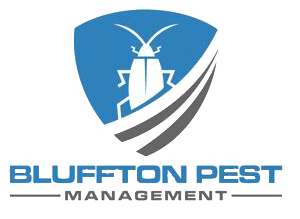Effective Strategies Against Household Pests
Steps You Can Take For A Pest Free Home
Living in a pest-free home is not merely a matter of comfort; it is a fundamental aspect of maintaining a healthy living environment. Pests, ranging from insects like ants and cockroaches to rodents such as mice and rats, can pose significant health risks and damage the structural integrity of your home. They are known to carry diseases, trigger allergies, and contaminate food sources, which can lead to serious health concerns for residents.
Food Management Strategies
Indoors, the key to deterring pests lies in how food is stored and disposed of. Proper food storage involves using sealed containers that are impervious to pests. Glass or heavy-duty plastic containers with tight-fitting lids can prevent smells from attracting them and block their access to food. This practice should be applied not only to human food but also to pet food, which is often overlooked.
The disposal of food waste is equally important. Ensuring that kitchen bins have lids that close securely and are emptied regularly helps to minimize odors. Additionally, cleaning routines play a vital role; wiping down surfaces to remove crumbs and food residue can significantly reduce the risk of attracting pests like ants, cockroaches, and rodents. Frequent cleaning of areas beneath kitchen appliances and inside cabinets where food debris can accumulate is also critical.
Outdoors, the management of food sources involves securing garbage bins and composts. Garbage bins should have lids that fit securely and are made of robust materials to withstand the attempts of larger animals like raccoons and rats to open them. Composting bins should be properly managed, which might involve using a tumbler composter that is more secure than open compost piles.
Additionally, homeowners should be aware of other potential food sources outside their homes. For example, pet food bowls should not be left out overnight, and fallen fruits or nuts should be regularly collected and disposed of from garden areas. Bird feeders can also attract pests, so they should be positioned away from the house and cleaned regularly to prevent spillages.
Comprehensive Moisture Control
Moisture plays a critical role in the life cycle of many pests. Various insects, such as cockroaches, silverfish, and termites, thrive in damp environments because moisture provides them with the necessary conditions for survival, breeding, and growth. Similarly, rodents also prefer humid environments as they offer a rich supply of water and conducive conditions for nesting.
High moisture levels can result from many factors, such as poor ventilation, leaks, or condensation, creating ideal breeding grounds for pests. For instance, termites are attracted to wood that has been softened by moisture, making buildings with water damage particularly vulnerable to termite infestations.
Check for leaks, drainage problems, and areas of condensation. Regular inspections can help catch these issues early before they contribute to pest problems. Adequate airflow can significantly reduce moisture levels in prone areas like basements, attics, and bathrooms. Ventilation systems, dehumidifiers, and exhaust fans are effective tools in managing air moisture content.
Removing Standing Water
Standing water is a prime breeding ground, most notably for mosquitoes, which lay their eggs in water. Even a small amount of stagnant water in buckets, plant saucers, or clogged gutters can support mosquito populations. Beyond mosquitoes, standing water can also attract other flies and can contribute to a humid environment conducive to pests like termites and carpenter ants.
To manage this issue, homeowners should regularly inspect their property after rainstorms for water accumulation and take steps to ensure proper drainage. This might involve cleaning gutters and downspouts to prevent water from pooling near the foundation, adjusting sprinkler systems to avoid over-watering, and using landscaping techniques that encourage water flow away from the house.
Maintenance And Management Of Overgrown Greenery
Overgrown plants, weeds, and accumulated garden waste can provide shelter and food sources for pests. Regularly maintaining the garden by trimming plants, removing weeds, and disposing of garden debris can reduce these risks. It's also beneficial to choose plants that are less attractive or are known to naturally repel pests, such as marigolds, lavender, and citronella.
Trees and bushes that touch or overhang the house can provide easy access. Trimming back these branches can prevent rodents, squirrels, and insects from gaining easy access to the roof or windows. It’s important to maintain a clear space between landscaping and the building’s exterior to minimize the risk of pests migrating from plants to the structure.
Regularly clearing away debris and storing firewood off the ground and away from the house can prevent it from becoming a pest haven. Proper storage solutions and routine checks for activity in these areas are necessary to ensure they do not become a source of infestation.
The Value Of Professional Pest Control Services
When dealing with infestations, homeowners might be tempted to tackle the problem on their own. However, professional services offer significant advantages that DIY methods cannot match.
Homeowners should hire a professionals if infestations continue despite previous attempts to eliminate them. It indicates that the underlying cause of the infestation has not been addressed. This can also cause infestations to get too large for effective home treatment.
Certain pests, such as termites and rodents, can cause significant damage to a home, and others, like roaches, rodents, and mosquitoes can pose health risks. Professionals can manage these, reducing the hazards associated with them.
Professionals offer scheduled visits that help prevent the occurrence in the first place. Regular inspections and treatments ensure that pests are managed before they become a visible problem. One of the most effective long-term control methods is exclusion—sealing off entry points to stop them from entering a home. Professionals can identify even the smallest cracks and gaps in the building envelope that might be missed by the untrained eye.
Don’t let pests take over your home and peace of mind. At Bluffton Pest Management, we specialize in creating pest-free environments with our comprehensive solutions. Contact us for your consultation today.
